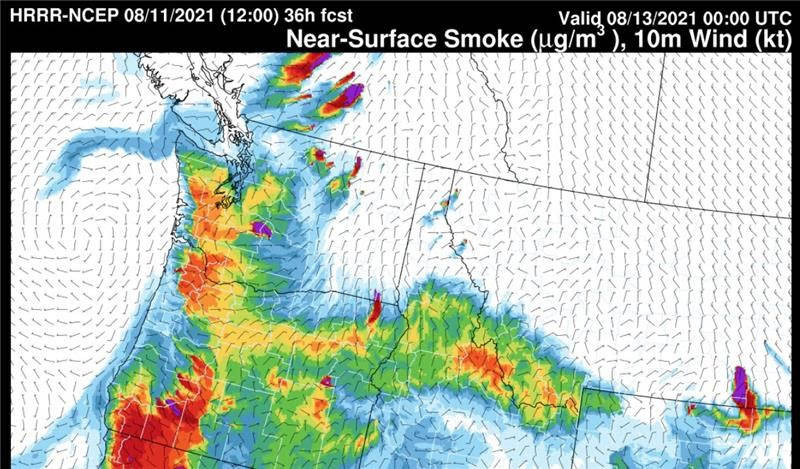Submitted by the U.S. Forestry Service.
Air quality advisors with the Forest Service are warning that air quality is anticipated to deteriorate starting Thursday, Aug. 12, due to multiple wildfires burning throughout the Pacific Northwest region. Air quality in the greater Puget Sound and Portland metro areas may decrease to ‘moderate’ while air near the Cascade Crest may decrease to ‘Unhealthy for Sensitive Groups’ or worse into the weekend.
“Where there is smoke there is fire, and we’ve got more than a million acres of fire out there,” said Alex Robertson, Regional Director of Fire, Fuels and Aviation Management for the Pacific Northwest and Alaska. “With this marathon of a fire year we’re facing, it’s time for pacific northwest communities to get smoke ready for the days and weeks ahead.”
When wildfire smoke levels are high, even healthy people may be affected. Smoke-related health symptoms can include eye, nose and throat irritation, coughing, wheezing, shortness of breath, or headaches. The following precautions can help protect you and your family:
• Limit exposure – stay indoors whenever possible with the doors and windows closed. Use fans indoors set to recirculate if you have an air conditioner. Air filters or purifiers can also help. Your community may also have ‘clean air’ shelters in place at public facilities.
• If you must be outside, consider wearing a mask marked N95 or KN95. Common dust masks do not filter wildfire smoke particles.
• Children, older adults, pregnant or nursing women, and people with asthma or heart conditions are at greater risk and should take added precautions.
“As the wildfire year grows longer, more folks will potentially be exposed to smoke – even those living hundreds of miles away from the flames. Please don’t wait to prepare,” Robertson said.




